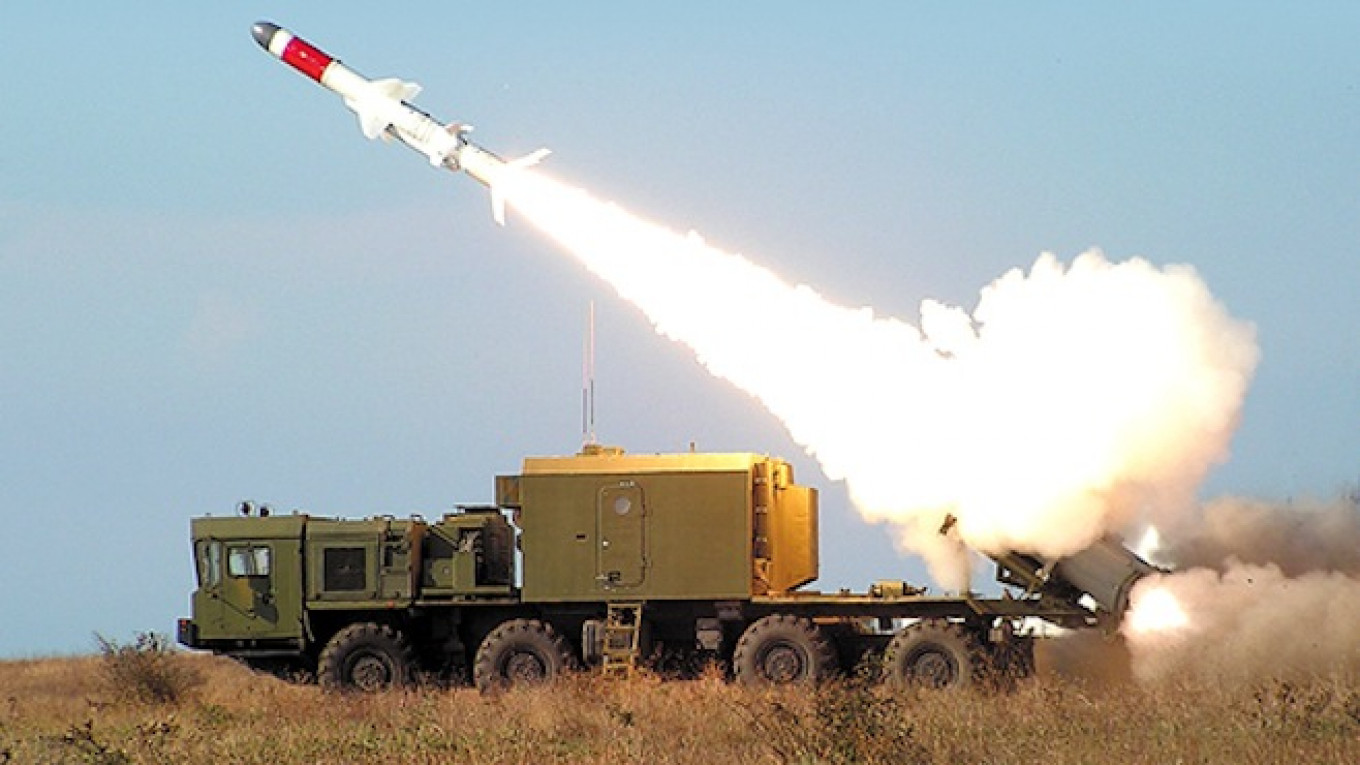The Russian Defense Ministry on Friday decided it will begin deploying new military hardware to the Kuril Islands — a disputed territory that the Soviet Union seized from Japan in the aftermath of World War II. Both Tokyo and Moscow claim sovereignty over the four islands, and Russian fortification there could exacerbate the dispute.
Russian Defense Minister Sergei Shoigu was quoted by the Vedomosti newspaper on Monday as saying Russia would deploy top-of-the-line Bal and Bastion coastal defense systems ?€” with ranges of up to 450 kilometers ?€” as well as Russia's new Aeleron-3 drones. The apparent goal is to create an area-denial zone around the Kuril Island chain similar to those recently fielded in Crimea and Syria.
“It is a provocative measure, but one that makes some military sense,” said Vladimir Frolov, a Russian foreign affairs expert. ?€?Ostensibly, they need to bolster defenses that have become dilapidated and ineffective [but] this will hurt relations with Japan at a time when their prime minister was trying to make nice with Moscow. It will kill prospects for warming ties.?€?
Despite Japan's efforts to seek closer ties with Russia, and perhaps even put the Kuril Islands dispute to rest, Moscow has repeatedly antagonized Tokyo. Last year, when Japan protested Russian Prime Minister Dmitry Medvedev's visit to the island chain, his deputy, Dmitry Rogozin, suggested that the Japanese ?€?calm down?€? and perform harakiri ?€” ritualistic suicide ?€” like ?€?real men.?€?
Historically, Russia's 18th machine gun-artillery division has been assigned to duties in the Kuril Islands. In the wake of the Soviet collapse, cuts to military funding hit this unit especially hard. Until 2008, they were equipped with antique weapons from the immediate post-war period. Under the military's 2020 rearmament program, they have already traded in their T-55 tanks for newer T-80s, Vedomosti reported.
In addition to new weapons deployments, Shoigu said Russia's Pacific Fleet will launch in April a three month ?€?expedition?€? to the islands, which stretch from Japan to Russia's Kamchatka peninsula. The Russian navy has been increasing its exercise tempo in the region, a military source was quoted by Vedomosti as saying, where particular focus has been paid to attack helicopter drills.
?€?All of this will play well with two audiences,?€? Frolov pointed out,?€? the domestic audience ?€” which likes tough postures against any territorial concessions ?€” and the Chinese, whom Putin is expected to visit in May.?€? But as for Russia's relationship with Japan, ?€?this is another case when security and propaganda trump foreign policy interests,?€? Frolov said.
However, not all experts were in agreement. Valery Kistanov, head of the Center for Japanese Studies at the Institute of Far Eastern Studies, told Vedomosti that there was sufficient strategic rationale to assert Moscow's hold over the Kuril Islands.
?€?The Japanese believe that Moscow should respond to Tokyo's demands to return all four of the islands, and also increase military cooperation with Japan, South Korea and the United States in the region,?€? he said. ?€?It appears to be aimed against North Korea, but really it's against China, which Tokyo considers to be its main threat. But today cooperation is against China, and tomorrow it could be against us.?€?
Contact the author at m.bodner@imedia.ru. Follow the author on Twitter at @mattb0401
A Message from The Moscow Times:
Dear readers,
We are facing unprecedented challenges. Russia's Prosecutor General's Office has designated The Moscow Times as an "undesirable" organization, criminalizing our work and putting our staff at risk of prosecution. This follows our earlier unjust labeling as a "foreign agent."
These actions are direct attempts to silence independent journalism in Russia. The authorities claim our work "discredits the decisions of the Russian leadership." We see things differently: we strive to provide accurate, unbiased reporting on Russia.
We, the journalists of The Moscow Times, refuse to be silenced. But to continue our work, we need your help.
Your support, no matter how small, makes a world of difference. If you can, please support us monthly starting from just $2. It's quick to set up, and every contribution makes a significant impact.
By supporting The Moscow Times, you're defending open, independent journalism in the face of repression. Thank you for standing with us.
Remind me later.


